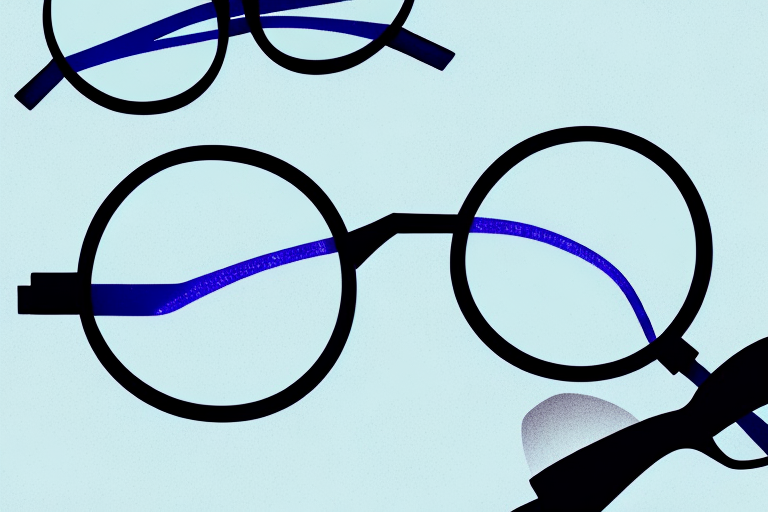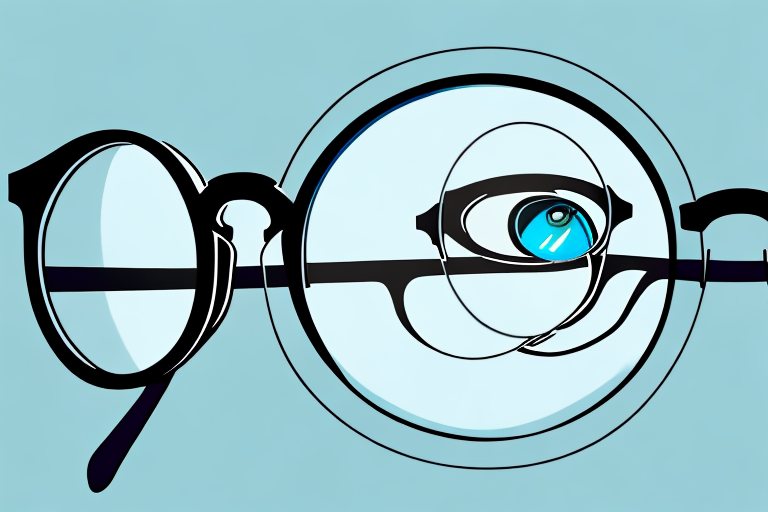As we age, our eyesight can deteriorate, and certain conditions and diseases can make it harder to see. One of these conditions is a cataract, which is a clouding of the natural lens of the eye that affects vision. Cataracts are common and can impact people of all ages. While there are several ways to address cataracts and improve vision, it can be challenging to determine the best approach for an individual’s unique needs.
In this article, we’ll explore cataracts surgery and other vision correction options to help you decide what solution is right for you.
Understanding Cataracts and Their Impact on Vision
What Are Cataracts?
Cataracts are a common condition that affects the natural lens of the eye. The lens is responsible for focusing light onto the retina, which sends signals to the brain to create an image. When cataracts develop, the lens becomes cloudy, which can make it harder to see. Cataracts can affect one or both eyes and can cause a range of symptoms, including blurred or distorted vision, sensitivity to light, and difficulty distinguishing colors.
It is important to note that cataracts are not a growth or a film that forms over the eye. Rather, they are a natural result of the aging process and the breakdown of proteins in the lens. This breakdown causes the lens to become cloudy and can lead to vision impairment.
Symptoms of Cataracts
The symptoms of cataracts can vary depending on the severity of the condition. Some people may not experience any symptoms at all in the early stages of cataract development. However, as the cataract progresses, it can cause a range of symptoms, including:
- Blurred or hazy vision
- Sensitivity to light
- Difficulty seeing at night
- Double vision
- Fading or yellowing of colors
It is important to note that some of these symptoms can also be caused by other eye conditions. If you are experiencing any of these symptoms, it is important to schedule an appointment with an eye doctor for a comprehensive eye exam.

Causes and Risk Factors for Cataracts
While aging is one of the most common contributors to cataract development, there are several other risk factors that can increase your chances of developing cataracts. Some of these risk factors include:
- Smoking: Smoking can increase the risk of cataracts, as well as other eye conditions.
- Excessive alcohol consumption: Drinking alcohol in excess can increase the risk of cataracts.
- Exposure to UV radiation: Prolonged exposure to UV radiation from the sun or tanning beds can increase the risk of cataracts.
- Long-term use of certain medications: Some medications, such as corticosteroids, can increase the risk of cataracts.
- Diabetes and other health conditions: People with diabetes or other health conditions may be more likely to develop cataracts.
It is important to note that while some risk factors for cataracts are unavoidable, such as aging and certain health conditions, others can be managed through lifestyle changes. Quitting smoking, limiting alcohol consumption, and wearing sunglasses to protect against UV radiation can all help to reduce the risk of cataracts.
If you are experiencing symptoms of cataracts or are concerned about your risk of developing this condition, it is important to schedule an appointment with an eye doctor. A comprehensive eye exam can help to identify cataracts and other eye conditions, and your doctor can provide guidance on the best treatment options for you.
Cataract Surgery: Procedure, Benefits, and Risks
As we age, our eyes go through many changes, and one of the most common changes is the development of cataracts. Cataracts are a clouding of the lens in the eye, which can cause blurry vision, glare, and difficulty seeing in low light. Fortunately, cataract surgery is a safe and effective way to restore vision and improve quality of life.
How Cataract Surgery Works
Cataract surgery is a common outpatient procedure that involves removing the clouded lens and replacing it with an artificial one. The surgery usually only takes about 15 minutes per eye and can typically be done using local anesthesia. During the procedure, the surgeon will make a small incision in the eye and use ultrasound technology to break up the cloudy lens. The lens fragments are then removed, and the artificial lens is implanted in its place.
After the surgery, patients may be advised to wear a protective shield over their eye for a few days, and they may also be prescribed eyedrops to help with healing. Most people experience significant improvement in their vision within a few days of the surgery, and many are able to return to their normal activities within a week or two.

Benefits of Cataract Surgery
Cataract surgery can provide several benefits for people who are experiencing vision problems due to cataracts. One of the most significant benefits is improved vision. Many people report that colors appear brighter and more vivid after cataract surgery, and they are often able to see more clearly in low light conditions.
In addition to improved vision, cataract surgery can also reduce glare and sensitivity to light, which can be especially helpful for people who spend a lot of time outdoors or driving at night. Better color perception is another common benefit of cataract surgery, and many people report that they are able to enjoy activities like reading, watching TV, and playing sports more easily after the procedure.
Perhaps one of the most important benefits of cataract surgery is increased independence and quality of life. For many people, cataracts can make it difficult to perform everyday tasks like cooking, cleaning, and driving. After cataract surgery, however, many people are able to regain their independence and enjoy a more active and fulfilling lifestyle.
Potential Risks and Complications
While cataract surgery is generally safe and effective, like any surgery, it does carry some risks and potential complications. Some of the most common risks of cataract surgery include infection, bleeding, increased eye pressure, retinal detachment, and swelling or inflammation in the eye.
It’s important to note, however, that serious complications are rare, and most people experience a smooth and uneventful recovery after cataract surgery. To minimize the risk of complications, it’s important to choose a skilled and experienced surgeon, follow all pre- and post-operative instructions, and attend all follow-up appointments with your eye doctor.
If you’re experiencing vision problems due to cataracts, don’t hesitate to talk to your eye doctor about cataract surgery. With its many benefits and low risk of complications, cataract surgery can help you regain your vision and enjoy a more active and fulfilling life.
Alternative Vision Correction Options
When it comes to vision correction, eyeglasses and contact lenses are the most common options. They are a good choice for people with mild to moderate vision problems due to cataracts or other conditions. Eyeglasses can be prescribed to address specific vision needs, and contacts can provide a more natural vision experience. However, it is important to note that eyeglasses and contacts cannot cure cataracts.
If you are looking for a more permanent solution, refractive surgery may be an option. This type of eye surgery reshapes the cornea to improve vision. LASIK, PRK, and SMILE are all examples of refractive surgery. While these procedures can be effective, they are typically not recommended for people with cataracts, as the presence of cataracts can impact the accuracy of the treatment.
Another option to consider is implantable collamer lens (ICL) surgery. This procedure involves implanting a synthetic lens into the eye to replace the natural lens affected by the cataract. The procedure is similar to cataract surgery and can provide long-term vision correction. However, not everyone is a good candidate for ICL surgery, and the procedure may not be covered by insurance.
For people with moderate to severe vision problems, corneal inlays and onlays may be a good option. These are small synthetic lenses that are surgically implanted into the cornea to improve vision. However, it is important to note that this procedure is not recommended for people with severe cataracts or other eye conditions.
Ultimately, the best option for you will depend on your individual needs and preferences. It is important to discuss all of your options with your eye doctor to determine the best course of action.

Factors to Consider When Choosing a Vision Correction Solution
When it comes to vision correction, there are a variety of options available to patients. From eyeglasses and contacts to surgery, the choice of solution depends on a number of factors. In this article, we’ll explore some of the key considerations to keep in mind when choosing a vision correction solution.
Severity of Vision Impairment
One of the most important factors to consider when choosing a vision correction solution is the severity of your vision impairment. For those with mild vision problems, eyeglasses or contacts may be sufficient to correct the issue. However, for more severe cases, surgery may be necessary. It’s important to consult with an eye doctor to determine the best course of action for your specific situation.
In some cases, the severity of the vision impairment may also impact the type of surgery that is recommended. For example, LASIK may not be the best choice for those with extremely high prescriptions or thin corneas.
Age and Overall Health
Age and overall health are also important considerations when choosing a vision correction solution. For older patients, certain types of surgery may not be recommended due to the increased risk of complications. Additionally, some health conditions may make certain types of surgery or other solutions less viable.
It’s important to discuss your overall health and any medical conditions with your eye doctor before making a decision about vision correction.
Lifestyle and Occupational Needs
Another important factor to consider is your lifestyle and occupational needs. For example, athletes or people who work outdoors may prefer contacts or eyeglasses over surgery, as these solutions are less invasive and do not require a recovery period.
On the other hand, those with more severe vision problems may benefit from cataract surgery or ICL surgery, which can provide a more permanent solution to vision impairment.
Cost and Insurance Coverage
Finally, it’s important to consider the cost of different vision correction solutions and whether they are covered by your insurance. Some procedures may be more expensive than others, and insurance coverage may be limited for certain types of surgery.
It’s important to discuss the cost of different options with your eye doctor and your insurance provider to determine the best course of action for your budget.
Overall, choosing a vision correction solution is a big decision that requires careful consideration of a number of factors. By keeping these key considerations in mind, you can make an informed decision about the best course of action for your vision health.
Conclusion
There are several vision correction options available to people with cataracts or other vision problems. Cataract surgery is a safe and effective way to improve vision, but it may not be the best option for everyone. Eyeglasses, contact lenses, and other forms of surgery can also be effective, depending on an individual’s unique needs and circumstances. Ultimately, the best solution for addressing cataracts or other vision problems will depend on a multitude of factors, and it’s essential to consult with a qualified eye doctor to determine what approach is right for you.
